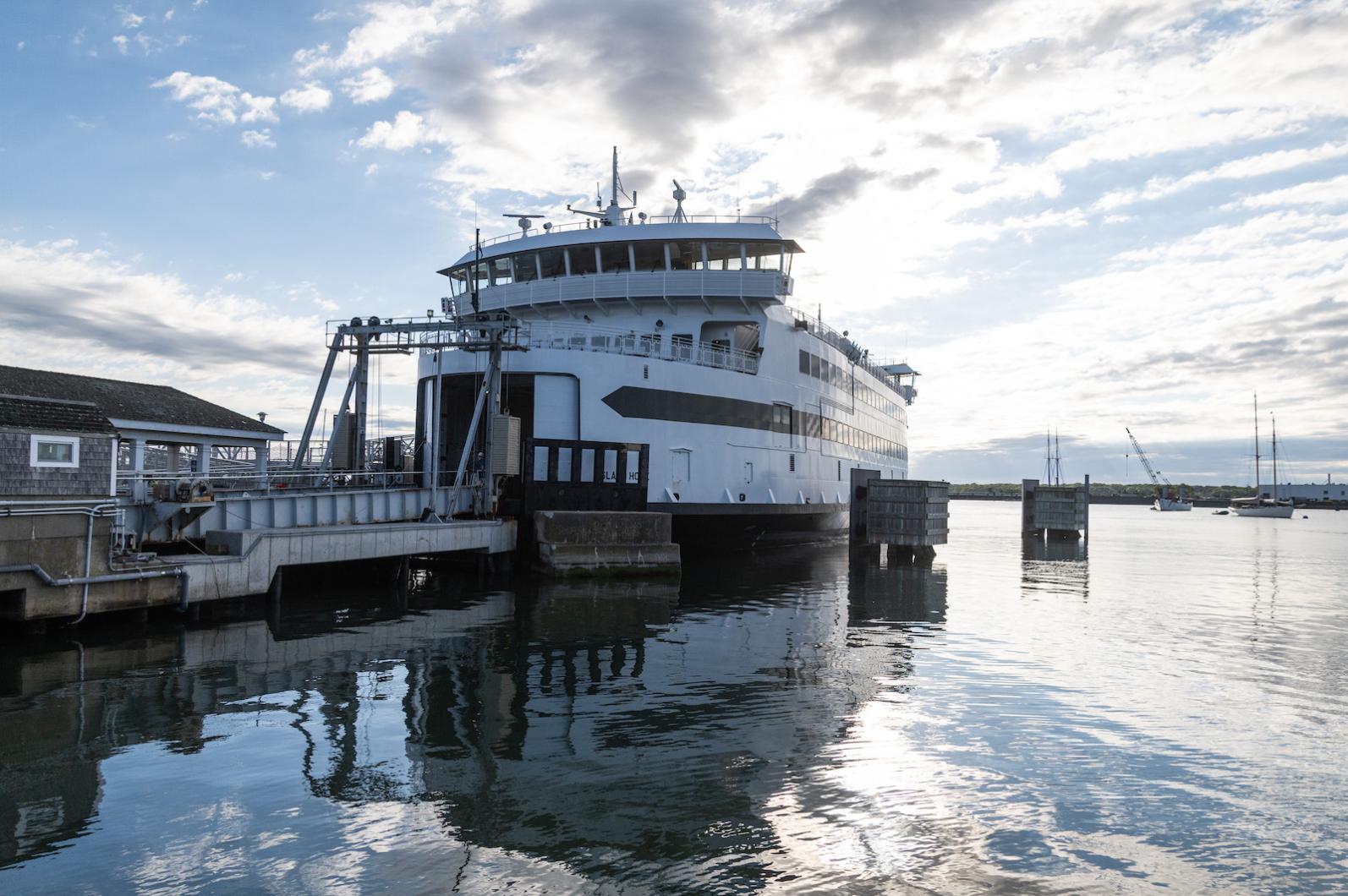The Steamship Authority board of governors voted this week to tie upcoming salary increases for its 100 or so non-union staffers — not including general manager Robert B. Davis — to the weighted average of pay raises for unionized workers, who make up the majority of the authority’s employees.
“I just want our employees to feel secure and taken care of,” said Falmouth board member Peter Jeffrey, whose motion passed unanimously at Thursday morning’s meeting in Nantucket.
Contract negotiations are currently under way between the authority and bargaining units in the Teamsters, SEIU and MEBA, a union for marine engineers.
On Thursday, the Steamship Authority board approved Mr. Davis’s request for a 5 per cent increase in pay for the non-union employees, effective July 1.
Under Mr. Jeffrey’s amendment, if the contract talks result in unionized workers receiving raises that average more than 5 per cent, the non-union staff will see their raises increased to match that average.
Mr. Davis’s own contract is due for renewal a year from now, and board members discussed his potential re-employment, as well as strategy for the union talks, during a closed session Thursday afternoon.
The board’s monthly public meeting began on a somber note, with Mr. Davis asking those present to stand before he announced the death last Sunday of Nantucketer Charron (Corky) Ranney, the mother of Steamship Authority board member Robert Ranney and widow of prior board member Flint Ranney, his father.
Mr. Ranney was present at the meeting, but spoke little in public except to vote. New Bedford representative Moira Tierney was absent.
Among other business Thursday, board members agreed to sell the M/V Gay Head and M/V Katama, former offshore oil service vessels the Steamship Authority purchased in the 1980s and enlarged for use as freight ferries.
The vote frees Mr. Davis to market the aging boats for sale for whatever the Steamship Authority can get for them.
It might not be a lot, Barnstable board member Robert Jones cautioned.
“You get about as much as for a Boston Whaler [outboard skiff], so don’t be surprised when the bids come in,” Mr. Jones said.
A retired Staten Island, N.Y. ferry, with an asking price of $155,000, recently sold for $100,000, chief operating officer Mark Higgins said.
That ferry is 320 feet long, Mr. Higgins added. The Gay Head and Katama are less than 250 feet in length.
While advertising the two older ferries for sale, the Steamship Authority is preparing to welcome the first of three newer-generation offshore service vessels that, like their predecessors, originally worked in the Gulf of Mexico.
Operations and maintenance director Mark Amundsen reported that the M/V Barnstable is scheduled to weigh anchor in mid-July for its voyage to New England from Alabama Shipyard in Mobile.
“Once we have finished sea trials, we will be ready to head north,” Mr. Amundsen said.
Work on the identical M/V Aquinnah is still being finished in Alabama, while the sister ships’ triplet, M/V Monomoy, has yet to begin the conversion process, Mr. Amundsen said.
A shipyard contract for the Monomoy is expected to come before the Steamship Authority board next month.
Also Thursday, board members wrangled again over the Steamship Authority’s advertising policy.
Martha’s Vineyard board member James Malkin continued to oppose a policy that does not exclude ads like the controversial PETA placard, currently seen on Steamship Authority ferries, that asks “Did your lobster kill a whale?”
Citing the Vineyard economy, which includes lobstering, Mr. Malkin said he’d rather see no advertising at all and forgo an estimated $100,000 in annual revenue.
“Do we want to do advertising that may wind up being problematic for members of our community, particularly as we deal with increasingly divergent opinions not only in our operation but across the nation?” he asked.
Supported by his fellow board members, Mr. Malkin requested that the Steamship Authority draft an advertising policy akin to the one some municipalities apply to their flagpoles, on which only public agencies and recognized groups are allowed to fly their flags.
During public comment at the end of the meeting, the board heard from some frustrated customers.
“The issue of boats going off half full when people who qualify for excursion rates can’t get [reservations] … seems to be a problem,” said Michael Klein, by Zoom.
“Unless someone communicates better, it sounds like the Steamship Authority doesn’t want to sell an excursion rate,” Mr. Klein said.
Steamship director of shoreside operations Alison Fletcher, in response, blamed a “glitch” in the reservation system that is not showing regular spaces that remain available after a boat’s allocation of excursion reservations has sold out.
“We are working with IT on trying to get this resolved, because it is an inconvenience for people — we heartily agree with that,” Ms. Fletcher said.
Trucking company owner Miles Reis of Nantucket made his comments in person, standing to charge Mr. Davis and the board with failing to anticipate the shortage of crew that has led the Steamship Authority to cut its summer schedule.
“I can’t believe that the people sitting at that table have let this get this far, when four years ago I knew we had people retiring in your company,” said Mr. Reis, who followed his father in the family freight business.
“This is the worst service we’ve ever had [in] 60 years,” he said. “I think it’s a sad state of affairs.”
Editor's note: a previous version of this article incorrectly stated that the Steamship Authority general manager was also getting a raise. The article has been corrected.






Comments (6)
Comments
Comment policy »